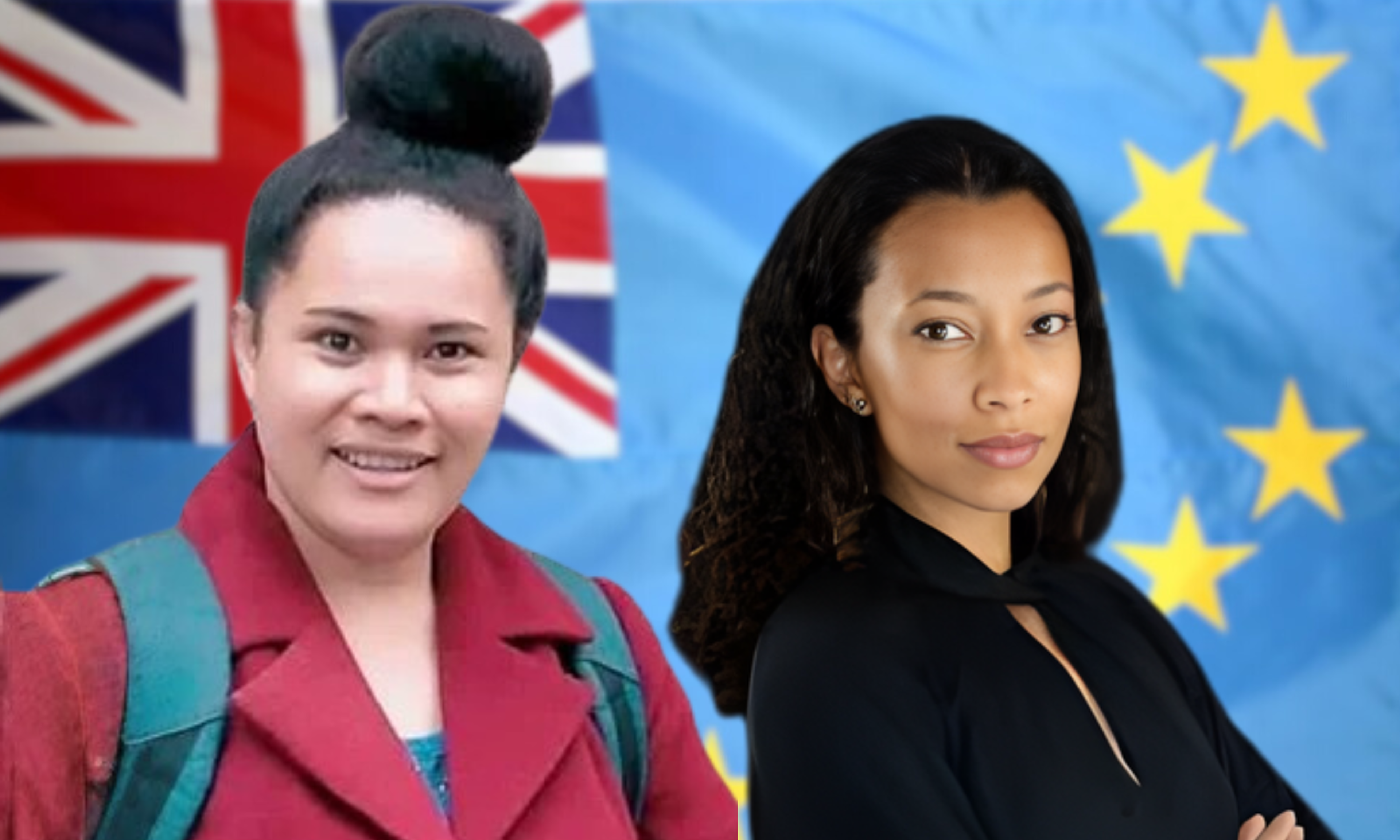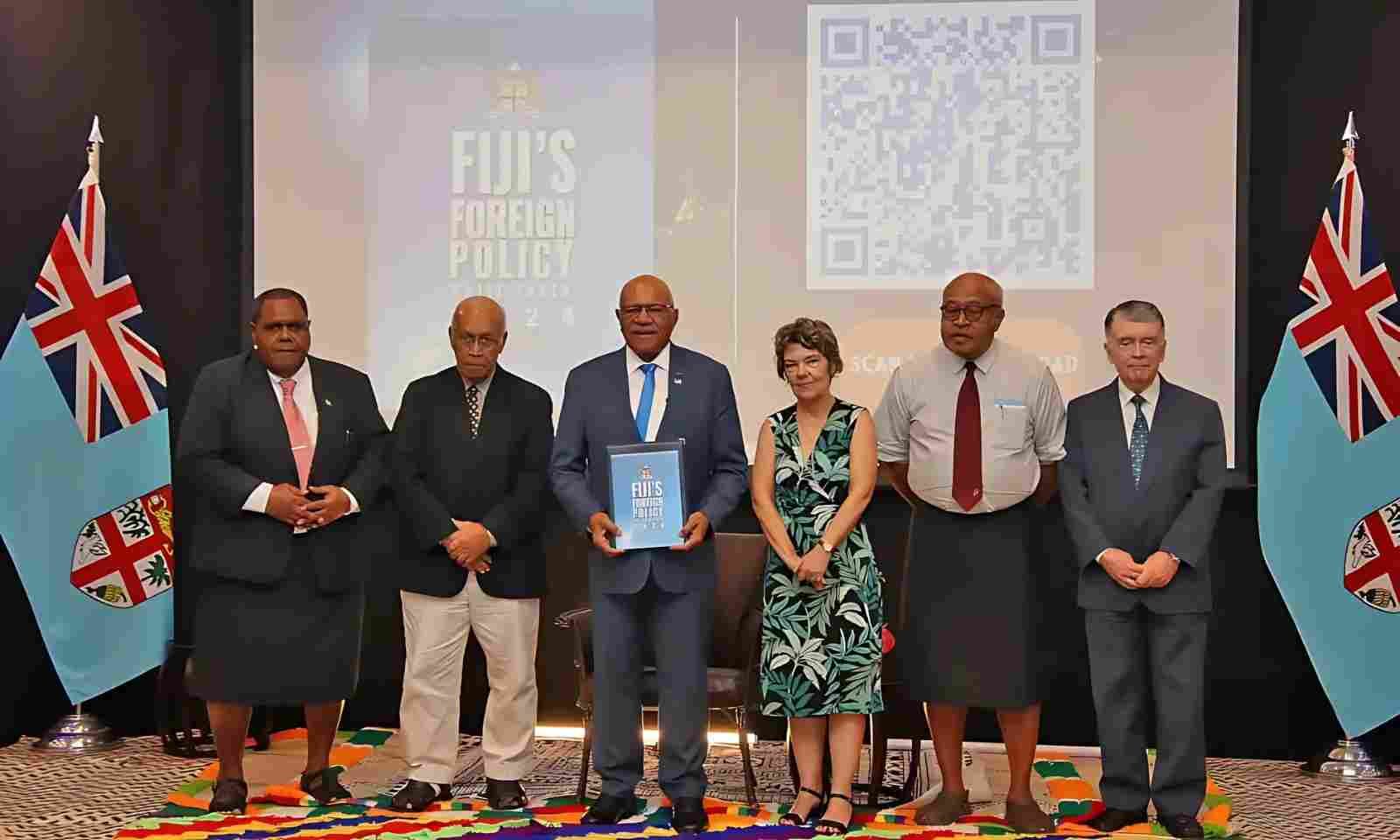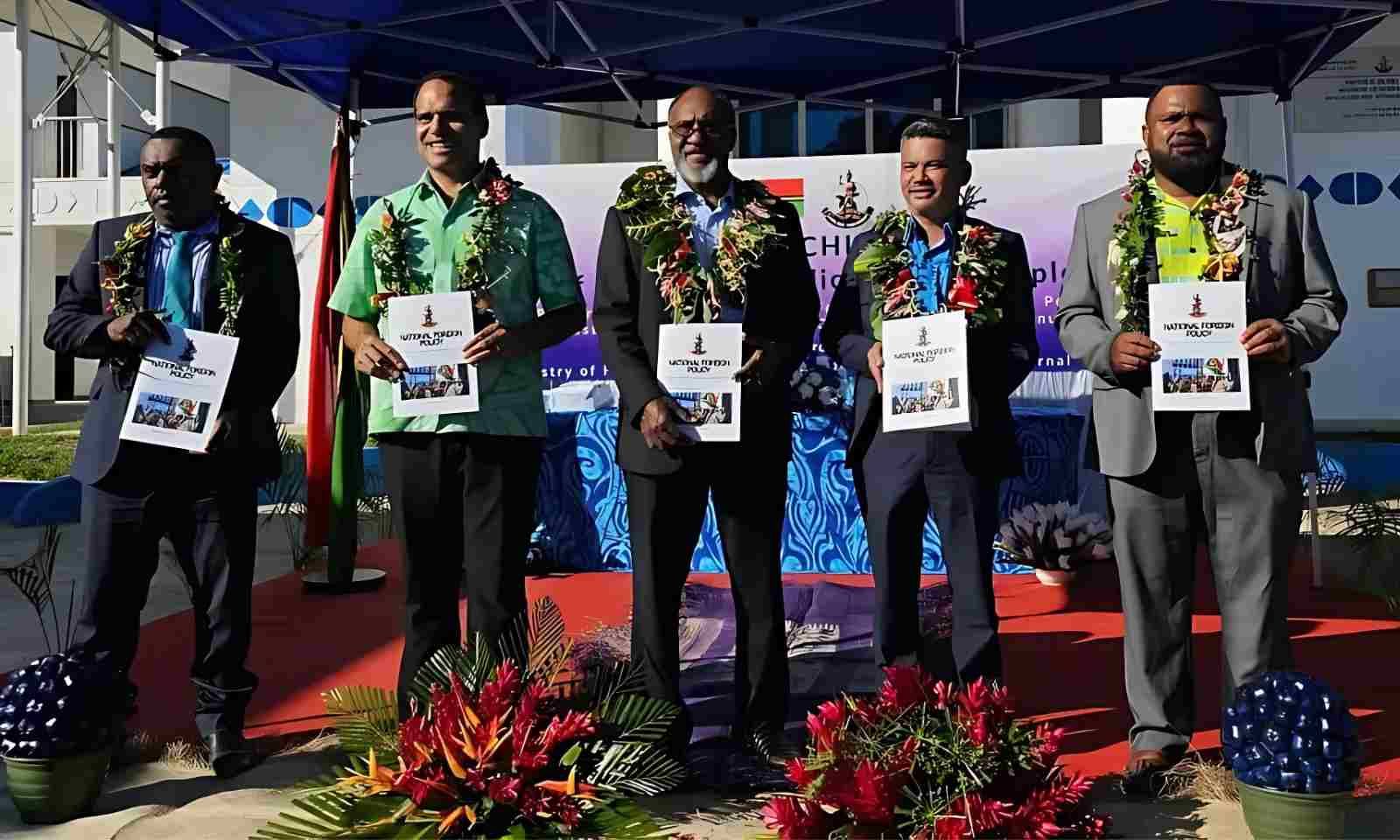

From left, Fiji Prime Minister Sitiveni Rabuka, US President-elect Donald Trump, China President Xi Jinping, and Vanuatu Prime Minister Charlot Salwai.
Photo/supplied
Pacific leaders outline foreign policy priorities amid geopolitical and climate crises
Fiji's Sitiveni Rabuka and Vanuatu's Charlot Salwai have launched their first international blueprints that they hope will elevate the Pacific voice.



Realm relations in focus as Tokelau-NZ marks 100-year history


‘One of our most trusted leaders’: Tributes flow for a beloved rangatira


Realm relations in focus as Tokelau-NZ marks 100-year history

While Vanuatu and Fiji's first-ever foreign policy documents reveal their non-aligned positions, the papers give both countries credibility amid competition by major geopolitical powers, such as China and the United States, for influence in the Pacific region.
Fiji Prime Minister Sitiveni Rabuka launched his government's Foreign Policy White Paper and said it would help the country deal with "complex foreign policy challenges" in the next decade.
Rabuka said the blueprint "explains how Fiji sees itself" and how it would like to "present itself" to the global community.
"It outlines the government's foreign policy initiatives such as the promotion of the Ocean of Peace - the single most significant contribution that Fiji can make to peace and security in our neighbourhood and the broader Indo-Pacific region," the prime minister said.
Rabuka said the document reaffirmed Fiji's central position, "making clear that in all we do in foreign policy, we will put the Pacific family first".
He said the policy was designed to parallel Fiji's development plan, launched last month, and the proposed national security and defence review.
The document also focuses on sovereignty, identity and values, security, transnational security, climate change, and bilateral relationships, including significant powers, prosperity, foreign policy, development assistance, and implementing foreign policy.
"This is a headline document. It is not a checklist of all we are doing in our foreign policy nor a catalogue of all our bilateral and multilateral relationships and activities," Rabuka said.
"Instead, it sets out the underlying principles of Fiji's foreign policy, our overarching objectives, our broad priorities, and how domestic and foreign policy are closely intertwined. It is a narrative of where we wish to go and how to get there," he said.

Fijian government officials including Prime Minister Sitiveni Rabuka, third from left, and Sandra Tarte, fourth, of the USP, at the country's Foreign Policy White Paper launch. Photo/Fiji govt
Sandra Tarte, of the University of the South Pacific, says Fiji's sovereignty, security, and prosperity are the traditional pillars of its foreign policy.
But the context in which Fiji pursues this has changed amid the geopolitical competition, she told William Terite on Pacific Mornings.
Tarte, who was part of a reference group that developed this policy paper, says the document "restates the fundamental principle that Fiji is friends to all.
"However, it does acknowledge that there are some partnerships that are much stronger, have longer historical links and connections, that Fiji will decide for itself on key issues, and not necessarily align with one or other major power.
"It's part of a trend you see now in the world where in this current context of geopolitical contestation and tension, countries are seeking to not necessarily stand outside and be passive and not engage at all, but seeing where they can engage and be more proactive.
"Active non-alignment. It's been non-aligned; however, it's been selectively engaging on key issues and perhaps intervening in key disputes and conflicts determined by national interests.
"One thing that's been commented on by a number of observers who have seen this document is security, and it frames Fiji's perhaps most compelling security threats and challenges in terms of the current geopolitics of the region, which is quite interesting - given that for the Pacific island countries, climate change is often highlighted as the most pressing issue and threat."
Vanuatu has also launched its first foreign policy. Prime Minister Charlot Salwai, facing a vote of no-confidence in his parliament, said the document revealed that the country was "unwillingly" thrust into the geopolitical competition.
Sawai said this placed great demands on Vanuatu's diplomacy, adding that a foreign policy paper was essential for any country for several reasons.
Vanuatu's 52-page foreign policy paper outlined four objectives - promote its sovereignty and national boundaries, enhance the prosperity and well-being of all ni-Vanuatu people at home and abroad through practical bilateral, regional, and international cooperation and trade, promote a stable, secure, and prosperous region as a responsible member of the Blue Pacific Continent, and contribute to global well-being through international cooperation on critical global challenges.

Vanuatu Prime Minister Charlot Salwai, centre, with officials at the launch of the country's foreign policy blueprint. Photo: Facebook/Ministry of the Prime Minister - Vanuatu
Whether Salwai will remain in power to implement his foreign policy remains to be seen.
Vanuatu's Speaker announced on Friday that he had accepted two motions seeking to remove Salwai and President Nikenike Vurobaravu.
Tarte said the Pacific region was in the middle of a possible long transition from the US-led liberal international order to a more multipolar world.
She said the old international order, in which the Pacific was a beneficiary, saw unprecedented global cooperation and economic interdependence slowly diminishing.
In its place is a complicated competition for primacy between Washington and Beijing playing out in the Indo-Pacific region.
In the wake of Donald Trump's return to the White House, the US President-elect is rushing to enact his America First agenda at home and abroad.
Watch Sandra Tarte's full interview below.
Political experts say this is a crucial strategy for his foreign policy and national security teams.
For the Pacific, observers say Trump could shift US foreign policy with significant implications, given the region's growing importance in global trade, security, and geopolitics.
Trump's Secretary of State, Marco Rubio, has indicated a China policy that could go beyond tariffs and trade to a more "hawkish" stance as the US' top strategic rival.
Rabuka said that while China aspired to become the predominant power in the region, the US was also determined to maintain its pre-eminence.
"How this competition will play out is open to debate because the stakes are high, and there are significant risks of miscalculation."